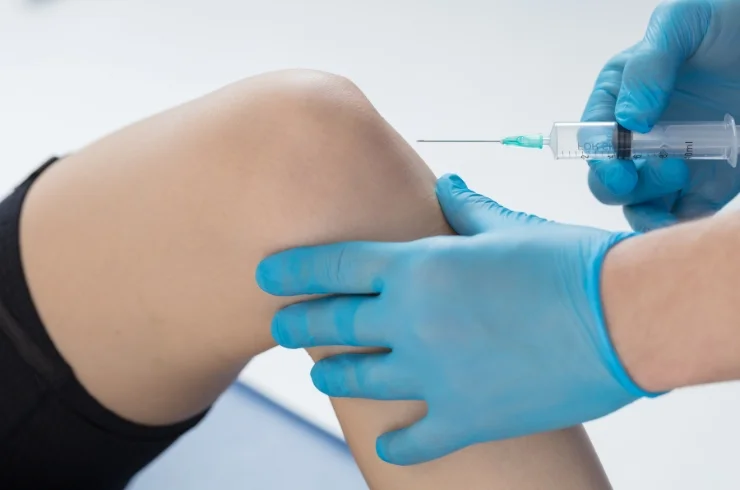Joint Injections

Joint injections are a common treatment option for managing pain and inflammation in joints, particularly in conditions like arthritis, bursitis, and tendonitis. These injections typically involve the administration of corticosteroids, hyaluronic acid, or platelet-rich plasma (PRP) directly into the affected joint.
Corticosteroid injections reduce inflammation and provide relief from pain, typically offering short-term benefits. They are effective for conditions like osteoarthritis and rheumatoid arthritis.
Hyaluronic acid injections aim to restore lubrication in joints, commonly used for osteoarthritis. They can improve joint mobility and reduce pain by mimicking the natural synovial fluid.
PRP injections use a patient’s own blood, processed to concentrate platelets and growth factors, which may help in healing and reducing inflammation. They are increasingly used for sports injuries and chronic conditions.
Joint injections are typically performed in a clinic or outpatient setting with minimal downtime. They can be highly effective in managing symptoms and improving the quality of life for patients. However, they are not curative and are often used as part of a broader treatment plan that may include physical therapy and lifestyle changes. While generally safe, potential side effects like infection, joint damage, or increased pain should be discussed with a healthcare provider.